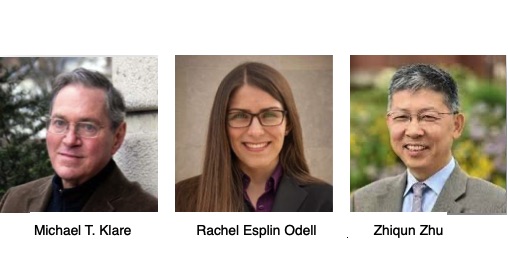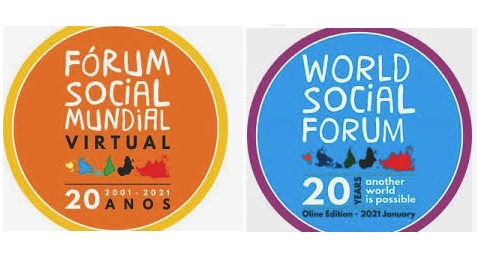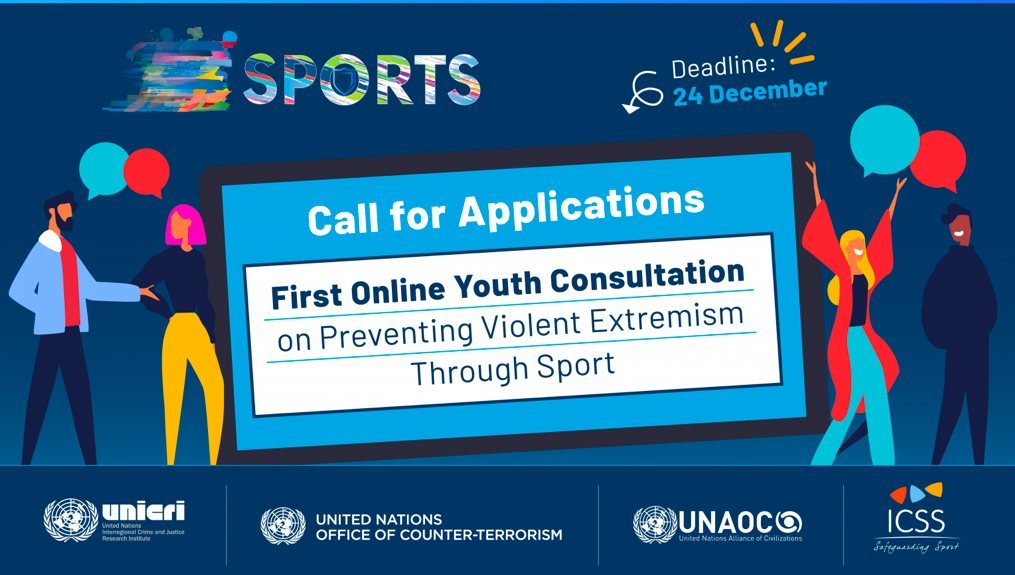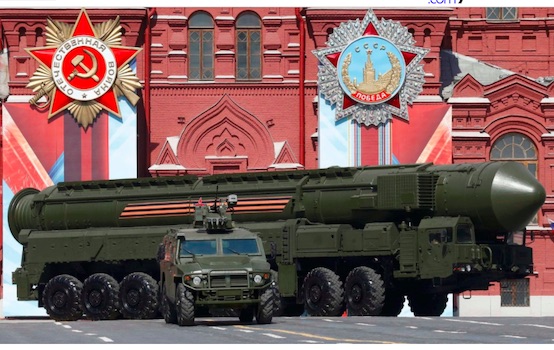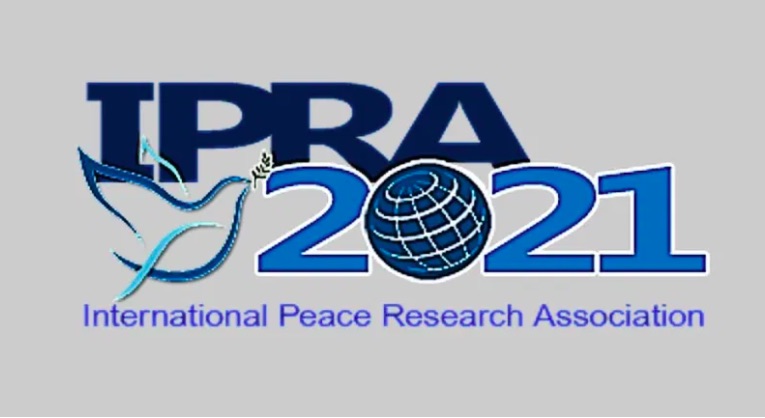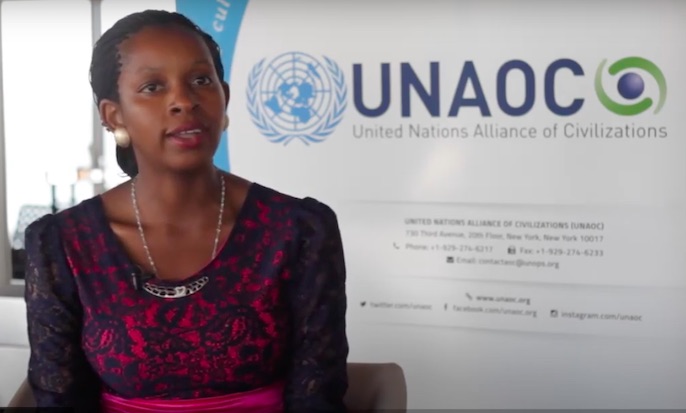DISARMAMENT & SECURITY .
A statement from the World Future Council
Joint statement by World Future Council members and Right Livelihood Laureates on the occasions of the Entry-into-Force of the Treaty on the Prohibition of Nuclear Weapons and the 75th anniversary of UN Resolution 1 (1)
We, Right Livelihood Laureates and Members of the World Future Council, express deep concern about the existential threat to humanity and the planet from the 14,000 nuclear weapons possessed by nine nuclear-armed States, many of them poised for use at a moment’s notice by decision of unstable leaders or through use by accident, miscalculation or crisis escalation.

The production, deployment, testing, use and threat to use nuclear weapons violate the Right to Life and other international law, threaten current and future generations, provoke international conflicts and consume resources required to address the COVID-19 pandemic and climate change, and to achieve the Sustainable Development Goals.
The very first resolution of the United Nations General Assembly, UN Res 1 (1) which was adopted by consensus on January 24, 1946, established the UN goal of the elimination of nuclear weapons and other weapons of mass destruction. It is time to fulfil that goal.
On January 22, 2021, the Treaty on the Prohibition of Nuclear Weapons (TPNW) will enter into force making it illegal for States Parties to develop, test, produce, manufacture, acquire, possess, deploy, use or threaten to use nuclear weapons, or to assist or encourage such acts. The treaty is an important measure by the 51 non-nuclear countries who have ratified, and others who may subsequently join, to advance the abolition of nuclear weapons through national nuclear prohibition measures and international promotion.
We encourage all ratifying states to adopt comprehensive implementing measures, to include prohibition of the threat, use, production, testing, transit and financing of nuclear weapons within their territorial jurisdiction. In particular, the prohibition of nuclear weapons transit and financing, including public investments in the nuclear weapons industry, would impact considerably on the nuclear arms race and on the policies and practices of the nuclear-armed states.
In addition, we encourage the ratifying states to establish ministerial positions, public advisory committees and disarmament education funds to facilitate public education and effective policy to further advance the objective of a nuclear-weapon-free world, as has already been done, for example, in New Zealand.
The nuclear armed and allied states have said that they will not join the Treaty. As such, they will not be bound by it. However, they cannot escape their individual and collective obligations to achieve nuclear disarmament. They agreed to this in UNGA Resolution 1 (1). Most of them also agreed to this in joining the Non-Proliferation Treaty, Article VI of which requires them to achieve nuclear disarmament. In addition, they are bound by customary international law prohibiting the threat or use of nuclear weapons as affirmed by the International Court of Justice in 1996 and the UN Human Rights Committee in 2018.
The Entry-into-Force of the TPNW on January 22, and the 75th anniversary of UNGA Resolution 1 (1) on January 24, 2021 provide opportune occasions for non-nuclear governments and civil society to remind the nuclear armed and allied states of the illegality of the threat or use of nuclear weapons and of their nuclear disarmament obligations, and call on them to implement these immediately.
The nuclear armed and allied states claim that they require nuclear deterrence for their security. However, they have a legal obligation under the UN Charter (Article 2) to achieve security without reliance on the threat or use of force in their international relations. In addition, the UN and many regional bodies and treaty organisations, provide mechanisms for achieving security and resolving conflicts through common security approaches including diplomacy, negotiation, mediation, arbitration and adjudication – instead of through militarism and war.
And, if we have learned anything from the climate crisis, unprecedented biodiversity loss and the COVID-19 pandemic, it is that militarism and weapons, including nuclear weapons, are useless in addressing the key human security issues of today and tomorrow.
The 1972 Biological and Toxin Weapons Convention (BTWC), with 183 States Parties, has abolished biological weapons, and the 1993 Chemical Weapons Convention (CWC), with 193 States Parties, has abolished chemical weapons. It is now time to abolish the third class of weapons of mass destruction, nuclear weapons.
(Continued in right column)
Can we abolish all nuclear weapons?
(Continued from left column)
Measures the nuclear-armed and allied states should take include;
1. Affirm that nuclear war cannot be won and must never be fought, stand down their nuclear forces and affirm policies never to initiate a nuclear war;
2. Replace nuclear deterrence with security frameworks based on human security and common security, including acceptance of the compulsory jurisdiction of the International Court of Justice for international disputes not resolved by other means;
3. Collectively join the TPNW, or alternatively start negotiations in a series of Summits or in a UN negotiating forum on the elimination of nuclear weapons under strict and effective international verification and enforcement;
4. Cut nuclear weapons budgets, end investments in the nuclear weapons industry, and redirect these investments and budgets to support the United Nations, COVID-19 management and recovery, drastic reductions in carbon emissions to protect the climate, achievement of the Sustainable Development Goals, and public education for disarmament and the peaceful resolution of conflict; and
5. Commit to achieving the complete, global elimination of nuclear weapons no later than 2045, the 100th anniversary of the United Nations.
In this way, humanity can abolish nuclear weapons and help assure a sustainable future.
Endorsers of the Joint RLA/WFC Statement on Nuclear Abolition for a Sustainable Future
Ales Bialiatski, Belarus, Right Livelihood Laureate 2020
Alexander Likhotal, Russia, Member, World Future Council
Alexandra Wandel, Germany, Chair Management Board, World Future Council
Alice Tepper Marlin, United States of America, Right Livelihood Laureate 1990
Alyn Ware, New Zealand, Right Livelihood Laureate 2009
Anda Filip, Romania, Member, World Future Council
Anders Wijkman, Sweden, Member, World Future Council
András Biró, Hungary, Right Livelihood Laureate 1995
Andrea Reimer, Canada, Member, World Future Council
Angelina Davydova, Russia, Member, World Future Council
Angie Zelter for Trident Ploughshares, United Kingdom, Right Livelihood Laureate 2001
Anwar Fazal, Malaysia, Right Livelihood Laureate 1982
Ashok Khosla, India, Member, World Future Council
Cherie Nursalim, Indonesia, Member, World Future Council
Chico Whitaker, Brazil, Right Livelihood Laureate 2006
Fernando Rendón, for Festival Internacional de Poesia de Medellin, Colombia, Right Livelihood Laureate 2006
Dan Ellsberg, United States of America, Right Livelihood Laureate 2006
Dipal Barua, for Grameen Shakti, Bangladesh, Right Livelihood Laureate 2007, Member, World Future Council
Frances Moore Lappé, United States, Right Livelihood Laureate 1987, Member, World Future Council
Gino Strada, Italy, Right Livelihood Laureate 2015
Hafsat Abiola, Nigeria, Member, World Future Council
Hans Herren, Switzerland, Right Livelihood Laureate 2013, Member, World Future Council
Hanumappa R. Sudarshan,India, Right Livelihood Laureate 1994
Helen Mack, Guatemala. Right Livelihood Laureate 1992
Helmy Abouleish, Egypt, Right Livelihood Laureate 2003, Member, World Future Council
Herbie Girardet, UK, Honorary Member, World Future Council
Hunter Lovins, USA, Right Livelihood Laureate 1983
Ida Kuklina for Committee of Soldiers’ Mothers of Russia, Russia, Right Livelihood Laureate 1996
Jacqueline Moudeina, Chad, Right Livelihood Laureate 2011
Jakob von Uexküll, Founder of the Right Livelihood Award and the World Future Council
Jan L McAlpine, USA, Member, World Future Council
Jean Ann Bellini for Comissão Pastoral da Terra, Brazil, Right Livelihood Laureate 1991
Juan E. Garcés, Spain, Right Livelihood Laureate 1999
Julia Marton-Lefèvre, Hungary, Member, World Future Council
Kehkashan Basu, Canada, Member, World Future Council
Khadija Ismayilova, Azerbaijan, Right Livelihood Laureate 2017
Mageswari Sangaralingam for SAM Sarawak, Malyasia, Right Livelihood Laureate 1988
Maria Fernanda Espinosa, Ecuador, Member, World Future Council
Marie-Claire Cordonier Segger, Canada, UK, Switzerland, Member, World Future Council
Martín von Hildebrand for COAMA, Colombia, Right Livelihood Laureate 1999
Maude Barlow, Canada, Right Livelihood Laureate 2005, Member, World Future Council
Neshan Gunasekera, Sri Lanka, Member, World Future Council
Nnimmo Bassey, Nigeria, Right Livelihood Laureate 2010
Ole von Uexküll, Executive Director, Right Livelihood Foundation
Paul Walker, United States of America, Right Livelihood Laureate 2013
Raul Montenegro, Argentina, Right Livelihood Laureate 2004
P K Ravindran for Kerala Sastra Sahitya Parishat (KSSP), India, Right Livelihood Laureate 1996
Sam Perlo-Freeman, for the Campaign Against the Arms Trade, Right Livelihood Laureate 2012
Shrikrishna Upadhyay, Nepal, Right Livelihood Laureate 2010
Sima Samar, Afghanistan, Right Livelihood Laureate 2012
Sulak Sivaraksa, Thailand, Right Livelihood Laureate 1995
Tony Colman, UK, Member, World Future Council
Tony Rinaudo, Australia, Right Livelihood Laureate 2018
Theo van Boven, the Netherlands, Right Livelihood Laureate 1985
Walden Bello, the Philippines, Right Livelihood Laureate 2003
Wes Jackson, United States of America, Right Livelihood Laureate 2000
Yetnebersh Nigussie, Ethiopia, Right Livelihood Laureate 2017
